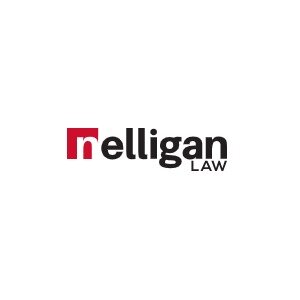Best Permanent Residency Lawyers in Ottawa
Share your needs with us, get contacted by law firms.
Free. Takes 2 min.
List of the best lawyers in Ottawa, Canada
About Permanent Residency Law in Ottawa, Canada
The field of Permanent Residency Law in Ottawa largely falls under the federal jurisdiction of Canada and involves helping immigrants obtain their Permanent Resident card. As a permanent resident, individuals gain the privilege to live, work, or study anywhere in Canada; access most of the social benefits Canadian citizens receive, including health care coverage; and be protected under Canadian law and the Canadian Charter of Rights and Freedoms. However, PRs in Canada are not allowed to vote, run for political office, or hold jobs that require high-level security clearances.
Why You May Need a Lawyer
Lawyers specializing in immigration and permanent residency laws can help simplify the complex PR process. Common scenarios where individuals may need a lawyer include when an applicant has had a criminal conviction, lived in Canada previously and left (or was ordered to leave), or has a job offer from a Canadian employer but is unsure of how to proceed. In addition, those who've applied on their own and were denied PR may need a lawyer to understand the reasons for refusal and reapply effectively.
Local Laws Overview
The two main regulations are the Immigration and Refugee Protection Act (IRPA) and the Immigration and Refugee Protection Regulations, providing the legal basis for Canada's immigration laws. The most pertinent regulations involve: eligibility criteria for PR (requires legal status, ability to economically support oneself and family, etc.); applications and processing; maintaining PR status (requirement of physically being in Canada for at least 2 out of 5 years); loss of PR status due to severe crimes or misrepresentation in applications; and rights and obligations of a PR.
Frequently Asked Questions
1. What are the Eligibility Criteria for Permanent Residency in Ottawa?
Eligibility requirements include being a skilled worker, possessing relevant experience in Canadian businesses, or having a valid nomination from a Canadian province or territory (through the Provincial Nominee Program).
2. What is the Process of Applying for Permanent Residency?
Applicants first need to check their eligibility and then submit an application form with the necessary documents. The application is then reviewed and if approved, applicants need to submit their passports for visa stamping.
3. What are the Key Reasons Applications get Rejected?
Common reasons include incomplete or incorrect applications, failure to demonstrate financial stability, or having a criminal record.
4. Can a Rejected Application be Appealed?
Yes, rejected applications can be appealed within a given timeframe. This is where having an experienced immigration lawyer can be particularly beneficial.
5. What are the Rights and Obligations of a Permanent Resident?
PR holders have the right to obtain social services, work, study, and travel anywhere in Canada, but must live in Canada for at least 2 years out of every 5 years to maintain PR status.
Additional Resources
Government bodies relevant to the process include Immigration, Refugees and Citizenship Canada (IRCC), the Canada Border Services Agency (CBSA), and the Canadian Human Rights Commission. Organizations like The Immigration Consultants of Canada Regulatory Council and various immigrant-serving organizations in Ottawa can provide additional assistance.
Next Steps
If you need legal assistance, start by consulting with a lawyer or a legal immigrant service. It's important to choose a legal representative who is authorized by the Canadian government, such as a lawyer, paralegal or immigration consultant.
Lawzana helps you find the best lawyers and law firms in Ottawa through a curated and pre-screened list of qualified legal professionals. Our platform offers rankings and detailed profiles of attorneys and law firms, allowing you to compare based on practice areas, including Permanent Residency, experience, and client feedback.
Each profile includes a description of the firm's areas of practice, client reviews, team members and partners, year of establishment, spoken languages, office locations, contact information, social media presence, and any published articles or resources. Most firms on our platform speak English and are experienced in both local and international legal matters.
Get a quote from top-rated law firms in Ottawa, Canada — quickly, securely, and without unnecessary hassle.
Disclaimer:
The information provided on this page is for general informational purposes only and does not constitute legal advice. While we strive to ensure the accuracy and relevance of the content, legal information may change over time, and interpretations of the law can vary. You should always consult with a qualified legal professional for advice specific to your situation.
We disclaim all liability for actions taken or not taken based on the content of this page. If you believe any information is incorrect or outdated, please contact us, and we will review and update it where appropriate.








